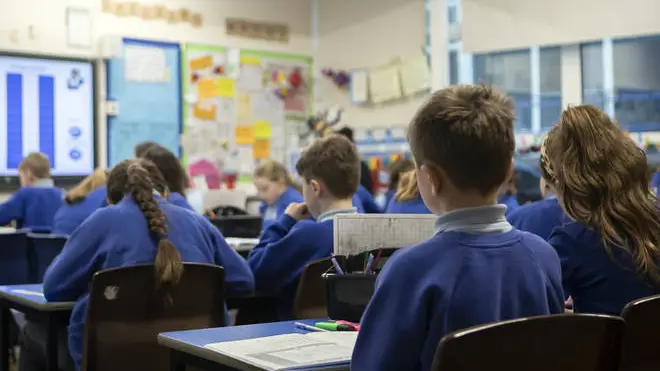
Nick Abbot 10pm - 12am
13 June 2021, 11:22 | Updated: 13 June 2021, 15:05

British scientists say they have made a ceiling-mounted Covid "alarm" that can detect the virus in a room within 15 minutes.
Teams at the London School of Hygiene and Tropical Medicine and Durham University claim the device has an accuracy of between 98 and 100 per cent.
If so, it would make the sensor as reliable as the gold-standard PCR lab-based coronavirus tests used for travel. It would also be far quicker than lateral flow tests used across the country.
However, the researchers stressed these are early results and their study has been published in a paper that has not yet been peer-reviewed.
Read more: Surge testing deployed in Canterbury after Delta variant cases rise
Read more: Army called in to deliver 12,000 Covid test kits in Bolton

Huge queues seen in Portugal airport as passengers line up for Covid tests
The highly accurate piece of technology, which is slightly larger than a smoke alarm, could be used for screening in aircraft cabins, classrooms, care homes and offices, according to a report in The Sunday Times.
It works by detecting chemicals, known as "volatile organic compounds", that are produced by the skin or are present in the breath of people infected with Covid-19.
Their odour is too subtle for the human nose but can be detected by dogs, the team of scientists said.
Read more: Covid lab leak theory discussed by G7 leaders, WHO boss confirms
Read more: Police officer at G7 summit tests positive for Covid

Ryanair chief: Vaccines will remove need for 'crazy' PCR tests for travel
However, they added that the machine, which has been made by Cambridgeshire firm Roboscientific, would be more accurate and practical.
The detectors will be able to find people with the virus even if they are showing no symptoms, the newspaper added, which would make it more effective than PCR tests that can be inadequate for asymptomatic carriers.
They take 15 to 30 minutes to sample the air in a large room, with the results immediately sent to a mobile phone or computer.
Currently, the alarms would cost around £5,000 each, the paper said.